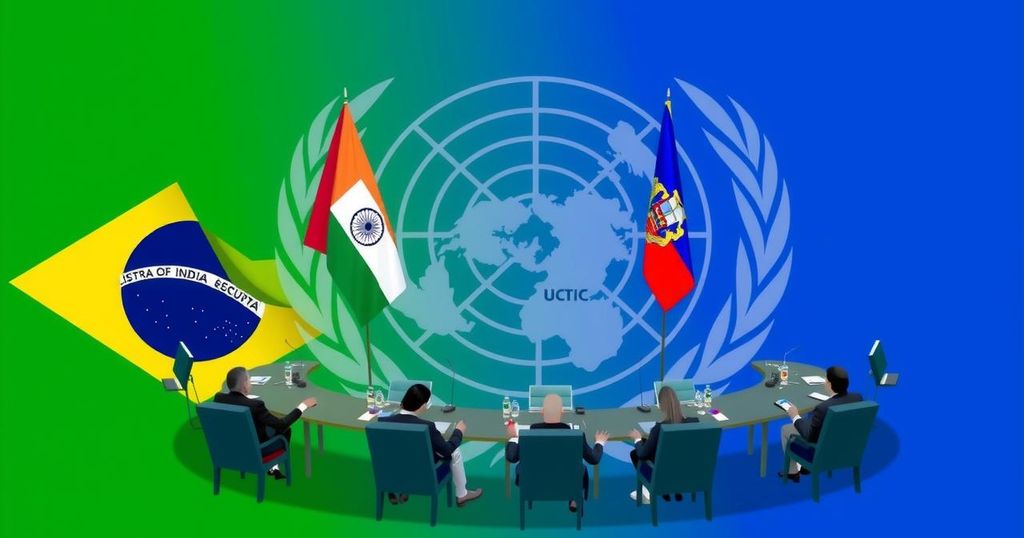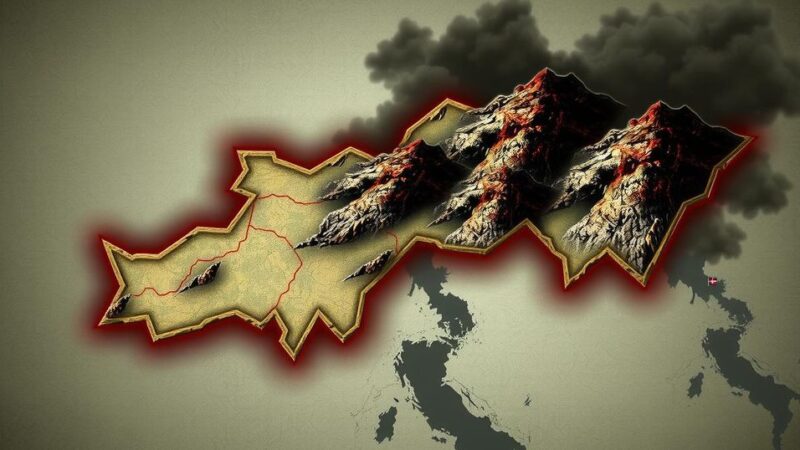Russian Foreign Minister Sergey Lavrov has expressed support for India and Brazil to obtain permanent seats on the United Nations Security Council, underscoring the necessity for representativeness of the global majority. This statement comes amid ongoing global discussions advocating for UNSC reform, with significant backing for India’s aspirations from other world leaders.
In a recent statement, Russian Foreign Minister Sergey Lavrov articulated his nation’s support for India and Brazil, alongside African nations, to obtain permanent representation on the United Nations Security Council (UNSC). He emphasized the importance of such representation for the global majority, asserting that these nations have long deserved a permanent seat. Lavrov stated, “Countries such as India, Brazil, as well as representatives of Africa should have been on a permanent basis in the Security Council for a long time. This is necessary to ensure representativeness, representation of the global majority,” as reported by TASS. India has actively pursued reforms within the UNSC for several years, advocating for an expansion of both permanent and non-permanent member categories. Indian officials argue that the current structure of the 15-member council, established in 1945, fails to adequately represent the realities of the 21st century and the shifting geopolitical landscape. New Delhi maintains that it is entitled to a permanent seat at the influential decision-making body. Recently, UK Prime Minister Keir Starmer, along with US President Joe Biden and French President Emmanuel Macron, has endorsed India’s bid for a permanent seat on the UNSC. India last held a non-permanent seat from 2021 to 2022, amid increasing calls for a revision of the council’s configuration to more accurately reflect contemporary global dynamics. These developments highlight a growing consensus among key international leaders regarding the need for reform within the United Nations Security Council, specifically to enhance its legitimacy and effectiveness by including major global players that are currently underrepresented.
The United Nations Security Council, originally established in 1945, consists of 15 member states, with five of these serving as permanent members with veto power: the United States, United Kingdom, France, China, and Russia. Over the decades, there have been widespread assertions that the UNSC requires reform to better reflect the geopolitical realities of today’s world. Many countries, particularly emerging economies and regional powers, have advocated for expansion in both permanent and non-permanent categories to enhance the council’s representativeness. India, for instance, has long argued for its inclusion as a permanent member, citing its significant contributions to international security and global governance.
The remarks by Foreign Minister Sergey Lavrov reaffirm Russia’s position on the need for structural changes in the United Nations Security Council. With significant endorsements for India’s permanent seat from global leaders, there is a palpable momentum towards reforming the UNSC to address its perceived shortcomings. This calls for not only political will but also a re-evaluation of the council’s composition to include nations that embody a broader spectrum of the international community.
Original Source: www.business-standard.com






